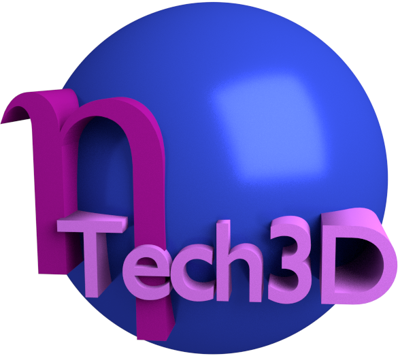


Three dimensional scanning, imaging and printing
solutions for the everyday world.




3D Scanning rapidly captures the surface geometry of a physical object and converts it to a digital 3D model format. These objects may be:
• virtually any size and shape.
(very large objects may require multiple scan sessions and consolidation of the resulting model files)
• animate, provided that they can remain still for the duration of the scan.
3D scanning acquisition software yields a data file containing a collection of three dimensional co-ordinate points (verticies) which when connected via a series of lines (edges), forms a faceted mesh of polygons to represents the surface topology of the scanned object.
Associated texture (colour/patterns) may also be captured and later re-applied to the surface of a viewable image or printed object.
Mission & Values
Services
2D/3D Imaging encompasses many facets (pun intended) and in this context describes the process of improving, supplementing and/or transforming 3D model data (captured or generated) into formats used by other visualization technologies. These processes can:
• remove extraneous surface data points from a raw scan model file.
• smooth irregular/unwanted surface features on the model.
• fill-in missing surface geometry (holes/gaps) or add new surface features to the model.
• generate comparative parametric geometry and/or measurement data from the model for subsequent analysis and/or importation into Computer
Aided Design (CAD) application software.
• prepare the model incorporation into digital sculpting and painting application software.
• map colours/patterns to surface of the model.
• render still and/or animated images for 2D visualization.
• prepare the model for 3D printing.
3D Printing (also referred to as “Additive Manufacturing”) converts 3D model data into a physical object to produce:
• rapid prototyping models for new product concept communication/visualization or form,
fit and function evaluation.
• scaled architectural models for concept communication/visualization.
• low volume production tooling, jigs, fixtures or molds.
• casting patterns.
• medical implants, exoskeleton or immobilization device components.
• scaled reproductions of life-sized objects or people.
• virtually anything you can envision...
